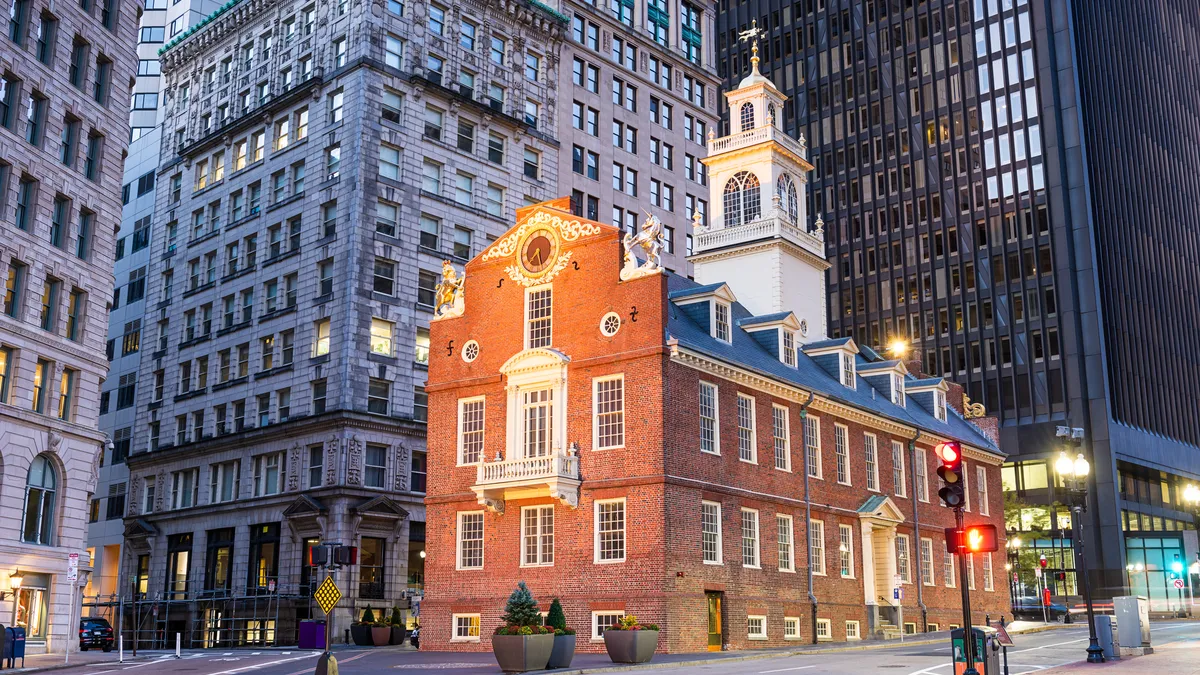Dive Brief:
- Boston Mayor Michelle Wu has signed an executive order eliminating fossil fuel use in new building constructions and renovations across the city.
- The order bans new municipal buildings from using common energy sources like natural gas and heating oil.
- It also prohibits fossil fuel use in major renovations of existing city-owned buildings, and requires projects that replace a building’s HVAC system to utilize renewable energy.
Dive Insight:
Boston owns more than 16 million square feet of property, according to Wu’s office. Wu said the move will accelerate Boston’s goal of achieving carbon neutrality by 2050, with buildings accounting for more than 70% of the city’s total carbon emissions, and municipal emissions constituting 2.3% of all those emissions. As part of its existing capital plan, the city has already allocated more than $130 million to advance decarbonized buildings and revitalize older structures.
In addition to new construction and renovations, the order prohibits fossil fuel use in major renovations of existing city-owned buildings, impacting alterations where structural work is planned in more than 75% of the building’s square footage. It also requires projects that involve replacing a building’s HVAC applications, hot water or cooking equipment to choose a system that does not draw on fossil fuel combustion.
Although limited to public buildings, this executive order is accompanied by a significant rule alteration regarding fossil fuel use in private projects. WBUR reported this change is slated to take effect next year.
In aid of the rollout, the city will initiate a facilities condition assessment to pinpoint decarbonization initiatives.
In her 2023 State of the City address, Wu revealed her plan to craft and enact this executive order. The order will apply to future capital projects, but it excludes projects presently in procurement, design or construction phases.

Earlier in July, Wu announced that Boston would adopt a specialized climate-friendly state-specific stretch code that mandates new constructions, even those currently using natural gas, to be equipped for future all-electric functionality. These regulations become effective Jan. 1, 2024.
Boston has a city-wide strategy to achieve net-zero building emissions by 2050, but the specifics of that plan are yet to be finalized.
Separately, Cambridge, Massachusetts, is revising its Building Energy Use Disclosure Ordinance to align with net-zero goals by 2050 as it intends to cut 50% of emissions by 2030.















